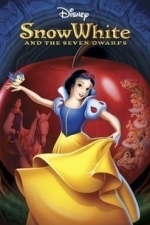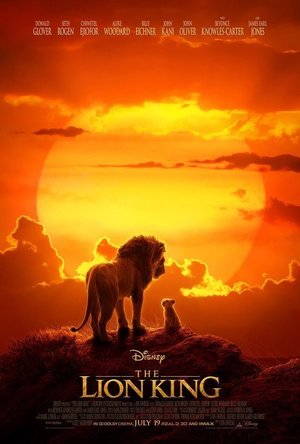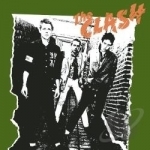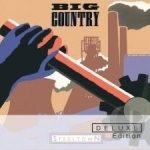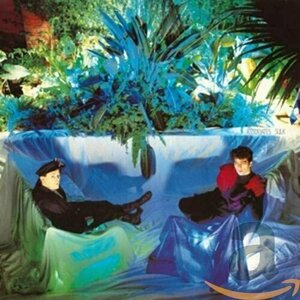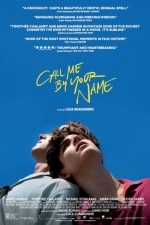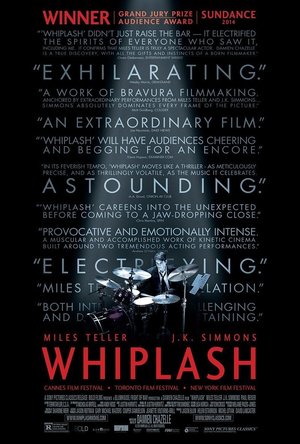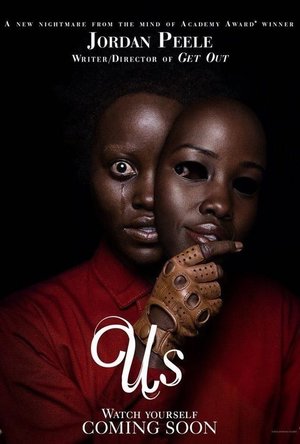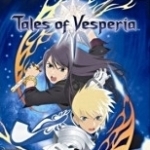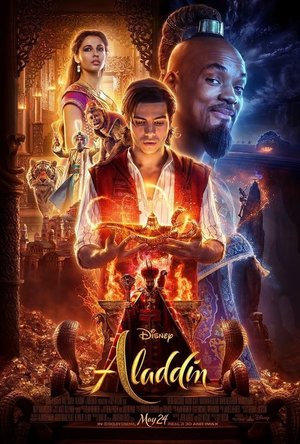Search
Search results
Phillip McSween (751 KP) rated Snow White and the Seven Dwarfs (1937) in Movies
Mar 5, 2020
Start-to-Finish Entertainment!
Princess Snow White finds herself on the run from her evil stepmother the Queen when the Queen finds out that Snow White is the prettiest girl in the land. First released in 1937, I’ve gotta say this movie still holds up today! Snow holds it down as the first Disney princess to grace the big screen.
Acting: 10
Beginning: 10
There’s some serious conflict going down in the castle and we come to learn that within the first ten minutes. The Queen is a real threat and we immediately come to worry about innocent Snow White who just wants to sing and be merry all day. I was immediately whisked away to this other place and time and I was excited for the journey.
Characters: 10
Still some of the best characters in film history. Having seven dwarfs with different personalities was genius! Sleepy was my dude! And there’s just something about Snow that really captivates me. She has a pure soul that inspires everyone around her, even the animals.
Cinematography/Visuals: 10
Conflict: 8
Entertainment Value: 9
Between the dwarfs, the fun musical numbers, and that cackling Queen, Snow White and the Seven Dwarfs kept me entertained from start to finish. Disney is a victim of its own success, however, as there are other animated movies I felt entertained me a wee bit more. That being said, this is a movie that could still capture and hold a kid’s attention today.
Memorability: 8
Pace: 10
Gets off to a pretty quick start and holds your attention from there. Even the songs aren’t wasted as they segment into the next important plot piece. The movie is a perfect example of rising conflict, then bringing the audience down for just long enough before hitting them again.
Plot: 8
My gripe with the movie’s plot is pretty small, but just enough to annoy me. I felt like the Queen went through A LOT of trouble just to turn into that witch only to give Snow an apple. At that point, if you want to kill her so bad, just make it happen right then! Classic case of a movie overthinking things and trying to be creative for the sake of being creative. Again, it’s small but too noticeable not to bring up.
Resolution: 10
Overall: 93
It always impresses me when classic films hold up today. I can imagine some of the older crowd might be offended by that just as if I might be offended if some young punk in 2035 is watching Jurassic Park and says, “Wow, this film is still solid to this day!” I get it, but I can’t help but admire a movie that is (as of this writing) eighty-three years old! Bananas. Disney came out of the gates swinging and hasn’t looked back since.
Acting: 10
Beginning: 10
There’s some serious conflict going down in the castle and we come to learn that within the first ten minutes. The Queen is a real threat and we immediately come to worry about innocent Snow White who just wants to sing and be merry all day. I was immediately whisked away to this other place and time and I was excited for the journey.
Characters: 10
Still some of the best characters in film history. Having seven dwarfs with different personalities was genius! Sleepy was my dude! And there’s just something about Snow that really captivates me. She has a pure soul that inspires everyone around her, even the animals.
Cinematography/Visuals: 10
Conflict: 8
Entertainment Value: 9
Between the dwarfs, the fun musical numbers, and that cackling Queen, Snow White and the Seven Dwarfs kept me entertained from start to finish. Disney is a victim of its own success, however, as there are other animated movies I felt entertained me a wee bit more. That being said, this is a movie that could still capture and hold a kid’s attention today.
Memorability: 8
Pace: 10
Gets off to a pretty quick start and holds your attention from there. Even the songs aren’t wasted as they segment into the next important plot piece. The movie is a perfect example of rising conflict, then bringing the audience down for just long enough before hitting them again.
Plot: 8
My gripe with the movie’s plot is pretty small, but just enough to annoy me. I felt like the Queen went through A LOT of trouble just to turn into that witch only to give Snow an apple. At that point, if you want to kill her so bad, just make it happen right then! Classic case of a movie overthinking things and trying to be creative for the sake of being creative. Again, it’s small but too noticeable not to bring up.
Resolution: 10
Overall: 93
It always impresses me when classic films hold up today. I can imagine some of the older crowd might be offended by that just as if I might be offended if some young punk in 2035 is watching Jurassic Park and says, “Wow, this film is still solid to this day!” I get it, but I can’t help but admire a movie that is (as of this writing) eighty-three years old! Bananas. Disney came out of the gates swinging and hasn’t looked back since.
Charlie Cobra Reviews (1840 KP) rated The Lion King (2019) in Movies
Jul 7, 2020
Return of The King
The Lion King is a 2019 computer-animated musical movie directed and produced by Jon Favreau. It was written by Jeff Nathanson, and produced by Fairview Entertainment and Walt Disney Pictures and distributed by Walt Disney Studios Motion Pictures. The film stars Donald Glover, Seth Rogen, Chiwetel Ejiofor, Beyonce and James Earl Jones.
King Mufasa (James Earl Jones) and Queen Sarabi rule over the animal kingdom with their pride of lions from Pride Rock, in the African Pride Lands. Things change with the birth of their son, Simba, the new Prince. Mufasa's younger brother, and former heir to the throne, Scar, covets the throne and plots to eliminate Mufasa and Simba, so he may become king. The battle for Pride Rock is filled with betrayal, tragedy and drama and circumstances are forever changed after the events of the stampede.
This movie was really good, but of course it was. The original Lion King was one of Disney's best animated films to date. There was a lot of build up to the release of this movie, with fans every anticipating when they could finally see this story on the big screen again. Jon Favreau did not disappoint, but there was a lot of negativity and bad review scores when it first released. I think the big problem was that in all the previews/trailers leading up to the movie coming out showed how realistic the animals looked and how they were able to recreate iconic scenes in stunning state of the art CGI, but they never showed the animals talking or singing. This for me made it difficult to get fully immersed in the film when the very realistic animals began talking and singing, but eventually it went away or I got used to it a couple minutes into the movie. Also they changed very little in this remake and it was almost literally a shot for shot or scene for scene recreation of the original Lion King, which I think bothered the critics. I personally liked little changes they made that I felt made the movie just a little bit better, like the dialogue between Mufasa's and Scar implying Mufasa's gave him the scar, Zimbabwe catching up with Nala for the journey back to Pride Rock, and Nala leading the female lions in the fight against the hyenas. I also thought it was cool how they made it more clear that one of the hyenas was the leader and it was the female and the scene where Scar makes the deal with them. Overall though I feel like they could have shown more emotion in the animals if they had chosen a style that was so detailed to look so realistic. I give this movie a 7/10. It is worth watching for nostalgia and to see it in theaters is a treat, especially when getting children or younger family members to see it for the first time, but the original is still the better film.
King Mufasa (James Earl Jones) and Queen Sarabi rule over the animal kingdom with their pride of lions from Pride Rock, in the African Pride Lands. Things change with the birth of their son, Simba, the new Prince. Mufasa's younger brother, and former heir to the throne, Scar, covets the throne and plots to eliminate Mufasa and Simba, so he may become king. The battle for Pride Rock is filled with betrayal, tragedy and drama and circumstances are forever changed after the events of the stampede.
This movie was really good, but of course it was. The original Lion King was one of Disney's best animated films to date. There was a lot of build up to the release of this movie, with fans every anticipating when they could finally see this story on the big screen again. Jon Favreau did not disappoint, but there was a lot of negativity and bad review scores when it first released. I think the big problem was that in all the previews/trailers leading up to the movie coming out showed how realistic the animals looked and how they were able to recreate iconic scenes in stunning state of the art CGI, but they never showed the animals talking or singing. This for me made it difficult to get fully immersed in the film when the very realistic animals began talking and singing, but eventually it went away or I got used to it a couple minutes into the movie. Also they changed very little in this remake and it was almost literally a shot for shot or scene for scene recreation of the original Lion King, which I think bothered the critics. I personally liked little changes they made that I felt made the movie just a little bit better, like the dialogue between Mufasa's and Scar implying Mufasa's gave him the scar, Zimbabwe catching up with Nala for the journey back to Pride Rock, and Nala leading the female lions in the fight against the hyenas. I also thought it was cool how they made it more clear that one of the hyenas was the leader and it was the female and the scene where Scar makes the deal with them. Overall though I feel like they could have shown more emotion in the animals if they had chosen a style that was so detailed to look so realistic. I give this movie a 7/10. It is worth watching for nostalgia and to see it in theaters is a treat, especially when getting children or younger family members to see it for the first time, but the original is still the better film.
Duff McKagan recommended Clash by The Clash in Music (curated)
James Dean Bradfield recommended Steeltown by Big Country in Music (curated)
Shirley Manson recommended Sulk by The Associates in Music (curated)
Bob Mann (459 KP) rated Call Me by Your Name (2017) in Movies
Sep 29, 2021
Of lazy Italian summer nights.
It took me two sittings on different transatlantic flights to get through Luca Guadagnino’s much vaunted coming of age film. And I accept that this piecemeal approach might not have enhanced my opinion of the movie. Because I’m going to upset some of you who claimed it to be your “film of the year” last year. While I enjoyed it, it certainly didn’t grab me like that.
What I will admit is that the film is gloriously sun-drenched and atmospheric, set as it is in the countryside around Crema in northern Italy. Shut your eyes and you can almost smell the olive trees and the bolognese simmering on the stove.
You have to hand it to them: the film just reeks of Italian class.
The story, set in 1983, concerns the 17 year-old musical prodigy Elio (Timothée Chalamet, “Lady Bird“, “Interstellar“) who, with his good looks, has the opportunity to seduce his fair share of Italian babes, specifically the gorgeous Marzia (Esther Garrel) who has the hots for him. Although not one to look a gift vagina in the mouth, Elio is sexually conflicted and finds himself increasingly drawn, romantically, to the dashing and cock-sure 24-year old American visitor Oliver (Armie Hammer, “Free Fire“, “The Man From U.N.C.L.E.“): a feeling that is, initially, reluctantly returned.
Love unrequited. Lady in red Marzia (Esther Garrel) – will she be eventually told to get on her bike?
The Oscar-winning screenplay by James Ivory (he of Merchant and Ivory production fame) is rich and deep with lines that roll off the actors’ tongues like syrup. The action also includes the most inappropriate use of foodstuffs since “American Pie” (and presumably that went in the bin afterwards!).
Family times around the dinner table can get exceptionally loud.
The drama is slow and drawn-out, so action-film fans will be asleep within the first 30 minutes. That wasn’t a problem for me…. it is a film in which you can really soak up the atmosphere. And it exquisitely explores the genuine pain of first love.
The pain of first love.
But what I’m afraid I really couldn’t relate to was Elio’s action about half-way through the film. In the main, he acts as a typically introspective and sensitive teenager, slightly awkward and bashful in approaching sexual matters. But then in a pivotal scene he makes a daring move which – to me – seemed completely out of character. This rather threw me, and I never really got my equilibrium back with the movie after that.
Elio and Oliver…. with Elio about to do something out of character.
It’s no doubt a finely crafted film. The sex scenes are beautifully shot and could never be accused of veering towards the pornographic. But I’m honestly not sure it’s a film that gripped me enough to seek it out to watch again in the future. (Sorry CMBYN lovers!)
What I will admit is that the film is gloriously sun-drenched and atmospheric, set as it is in the countryside around Crema in northern Italy. Shut your eyes and you can almost smell the olive trees and the bolognese simmering on the stove.
You have to hand it to them: the film just reeks of Italian class.
The story, set in 1983, concerns the 17 year-old musical prodigy Elio (Timothée Chalamet, “Lady Bird“, “Interstellar“) who, with his good looks, has the opportunity to seduce his fair share of Italian babes, specifically the gorgeous Marzia (Esther Garrel) who has the hots for him. Although not one to look a gift vagina in the mouth, Elio is sexually conflicted and finds himself increasingly drawn, romantically, to the dashing and cock-sure 24-year old American visitor Oliver (Armie Hammer, “Free Fire“, “The Man From U.N.C.L.E.“): a feeling that is, initially, reluctantly returned.
Love unrequited. Lady in red Marzia (Esther Garrel) – will she be eventually told to get on her bike?
The Oscar-winning screenplay by James Ivory (he of Merchant and Ivory production fame) is rich and deep with lines that roll off the actors’ tongues like syrup. The action also includes the most inappropriate use of foodstuffs since “American Pie” (and presumably that went in the bin afterwards!).
Family times around the dinner table can get exceptionally loud.
The drama is slow and drawn-out, so action-film fans will be asleep within the first 30 minutes. That wasn’t a problem for me…. it is a film in which you can really soak up the atmosphere. And it exquisitely explores the genuine pain of first love.
The pain of first love.
But what I’m afraid I really couldn’t relate to was Elio’s action about half-way through the film. In the main, he acts as a typically introspective and sensitive teenager, slightly awkward and bashful in approaching sexual matters. But then in a pivotal scene he makes a daring move which – to me – seemed completely out of character. This rather threw me, and I never really got my equilibrium back with the movie after that.
Elio and Oliver…. with Elio about to do something out of character.
It’s no doubt a finely crafted film. The sex scenes are beautifully shot and could never be accused of veering towards the pornographic. But I’m honestly not sure it’s a film that gripped me enough to seek it out to watch again in the future. (Sorry CMBYN lovers!)
5 Minute Movie Guy (379 KP) rated Whiplash (2014) in Movies
Jul 1, 2019
Whiplash makes for a painfully tense and terrifying learning experience that is nothing short of cinematic brilliance. It'll have you on the edge of your seat, with your heart still pounding even after it's over.
I believe that there’s a desire in all of us to achieve greatness. A deep, internal yearning for importance, respect, and acceptance. We want to be remembered and we want to fulfill a sense of purpose in our lives. For Andrew Nieman (Miles Teller), the central character in the 2014 Best Picture nominated film Whiplash, that desire is to be one of the all-time great jazz drummers. Of course, he knows that accomplishing such a goal will require a firmly fixed focus, an uncompromising dedication, and endless hours of practice. What he surely wasn’t expecting was to run into a teacher like Terence Fletcher (J.K. Simmons), who will stop at nothing in order to push his students to strive to be their very best. Whiplash makes for a painfully tense and terrifying learning experience that is nothing short of cinematic brilliance.
Andrew is a first-year student at the prestigious Shaffer Conservatory of Music in New York where the presence of their great head music conductor, Terence Fletcher, looms over everyone. Fletcher is well-known, respected, and feared. More importantly, he is their ticket to success as musicians. Landing a spot in his band is a coveted high honor. Earning his respect is even greater. Though under Fletcher’s guidance, success doesn’t come easy. He rules over the school like a maniacal dictator and he demands absolute perfection from his students. After all, he has a highly revered reputation to preserve, and he’s not about to let anyone jeopardize it. Andrew finds himself lucky enough to be chosen to rehearse with Fletcher’s band, but he’s soon tested, humiliated, abused, and pushed to the limit by his short-tempered instructor.
Already something of a loner, Andrew delves even deeper within due to pressure from his teacher, turning his passion for music into an unhealthy obsession. He cuts off contact with others and devotes himself entirely to practicing. With fingers bloodied from extensive drumming, he simply bandages them up and keeps at it. Not only is his music playing taking control of his life, but it’s also clearly taking a toll on his mental health. Even more troubling for Andrew is that no matter how hard he tries, Fletcher is never satisfied, and he torments his students until they get things right, even if it means practicing all night. Resentment and tension rapidly rise for Andrew as he approaches his breaking point, resulting in the film’s unforgettably tense conclusion.
Whiplash is no walk in the park. It will have you sitting on the edge of your seat in suspense and terror, with your heart still pounding even after it’s over. It’s an emotional horror for young Andrew who is put through Hell by his mad musical conductor. I was legitimately in fear for his life and sanity. While the movie has given me a greater respect for musicians, and jazz bands in particular, it sure makes me feel glad that I was never in band!
Whiplash is remarkable in its design and execution. The film’s cinematography shows a wonderfully adept eye for camera angles, and gives this low-budget film a distinguished look. The director revels in the closeness of the scene, putting us right alongside Andrew as he comes face-to-face with the ever-menacing Fletcher. It’s unbelievably tense and uncomfortable to watch while he’s being verbally and physically assaulted right before your eyes. The film’s Oscar-winning editing finds the right tempo with knowing when to cut and when to linger. It also expertly accompanies the music with its barrage of clear, fast-paced shots. Of course, Whiplash is also very respectful to its music sources, and it does an amazing job in showcasing the outrageous musical talent on display.
The performances from Miles Teller and J.K. Simmons are sensational. It is estimated that roughly forty percent of the drumming you see by Andrew in Whiplash was actually performed by Teller. Considering the ridiculous amount of skill involved in these jazz band classics, that statistic should not be understated in the least. Teller puts on an incredible display and pours his heart into this movie. He carries the film, appearing in every single scene, and makes for a believable transition of character under the strict discipline of Fletcher. Even more extraordinary is J.K. Simmons, who won the Oscar for Best Supporting Actor with this performance. Simmons injects his character with an intense ferocity that demands your attention. He terrorizes his musicians while conducting with an iron fist. Yet there’s far more to his character than just being a bully. While I disagreed with his abusive methods, I couldn’t argue against his intended result. His character’s extreme conduct will no doubt take things too far for some viewers, but despite all of his anger, I still found Fletcher to be remarkably fascinating. In the end, as deserving of hatred as he may be, I couldn’t help but feel some level of respect for him, and I think that really speaks to the quality of the film.
Whiplash is an emotionally stirring masterpiece that questions how much is too much when it comes to pushing someone to be their best. It also explores the emotional and psychological harm that can result from that level of pressure and abuse. The movie is bolstered by two tense and energetic performances from Miles and Simmons, who are deserving of all of their praise and accolades. You don’t have to be a fan of jazz music to enjoy this phenomenal film. I found the music to be intoxicating, but the real strength of the movie is the teacher and student dynamic between Andrew and Fletcher. With a diabolically delightful and brilliant ending, these two characters have achieved an esteemed level of movie greatness that make Whiplash a must-see!
Andrew is a first-year student at the prestigious Shaffer Conservatory of Music in New York where the presence of their great head music conductor, Terence Fletcher, looms over everyone. Fletcher is well-known, respected, and feared. More importantly, he is their ticket to success as musicians. Landing a spot in his band is a coveted high honor. Earning his respect is even greater. Though under Fletcher’s guidance, success doesn’t come easy. He rules over the school like a maniacal dictator and he demands absolute perfection from his students. After all, he has a highly revered reputation to preserve, and he’s not about to let anyone jeopardize it. Andrew finds himself lucky enough to be chosen to rehearse with Fletcher’s band, but he’s soon tested, humiliated, abused, and pushed to the limit by his short-tempered instructor.
Already something of a loner, Andrew delves even deeper within due to pressure from his teacher, turning his passion for music into an unhealthy obsession. He cuts off contact with others and devotes himself entirely to practicing. With fingers bloodied from extensive drumming, he simply bandages them up and keeps at it. Not only is his music playing taking control of his life, but it’s also clearly taking a toll on his mental health. Even more troubling for Andrew is that no matter how hard he tries, Fletcher is never satisfied, and he torments his students until they get things right, even if it means practicing all night. Resentment and tension rapidly rise for Andrew as he approaches his breaking point, resulting in the film’s unforgettably tense conclusion.
Whiplash is no walk in the park. It will have you sitting on the edge of your seat in suspense and terror, with your heart still pounding even after it’s over. It’s an emotional horror for young Andrew who is put through Hell by his mad musical conductor. I was legitimately in fear for his life and sanity. While the movie has given me a greater respect for musicians, and jazz bands in particular, it sure makes me feel glad that I was never in band!
Whiplash is remarkable in its design and execution. The film’s cinematography shows a wonderfully adept eye for camera angles, and gives this low-budget film a distinguished look. The director revels in the closeness of the scene, putting us right alongside Andrew as he comes face-to-face with the ever-menacing Fletcher. It’s unbelievably tense and uncomfortable to watch while he’s being verbally and physically assaulted right before your eyes. The film’s Oscar-winning editing finds the right tempo with knowing when to cut and when to linger. It also expertly accompanies the music with its barrage of clear, fast-paced shots. Of course, Whiplash is also very respectful to its music sources, and it does an amazing job in showcasing the outrageous musical talent on display.
The performances from Miles Teller and J.K. Simmons are sensational. It is estimated that roughly forty percent of the drumming you see by Andrew in Whiplash was actually performed by Teller. Considering the ridiculous amount of skill involved in these jazz band classics, that statistic should not be understated in the least. Teller puts on an incredible display and pours his heart into this movie. He carries the film, appearing in every single scene, and makes for a believable transition of character under the strict discipline of Fletcher. Even more extraordinary is J.K. Simmons, who won the Oscar for Best Supporting Actor with this performance. Simmons injects his character with an intense ferocity that demands your attention. He terrorizes his musicians while conducting with an iron fist. Yet there’s far more to his character than just being a bully. While I disagreed with his abusive methods, I couldn’t argue against his intended result. His character’s extreme conduct will no doubt take things too far for some viewers, but despite all of his anger, I still found Fletcher to be remarkably fascinating. In the end, as deserving of hatred as he may be, I couldn’t help but feel some level of respect for him, and I think that really speaks to the quality of the film.
Whiplash is an emotionally stirring masterpiece that questions how much is too much when it comes to pushing someone to be their best. It also explores the emotional and psychological harm that can result from that level of pressure and abuse. The movie is bolstered by two tense and energetic performances from Miles and Simmons, who are deserving of all of their praise and accolades. You don’t have to be a fan of jazz music to enjoy this phenomenal film. I found the music to be intoxicating, but the real strength of the movie is the teacher and student dynamic between Andrew and Fletcher. With a diabolically delightful and brilliant ending, these two characters have achieved an esteemed level of movie greatness that make Whiplash a must-see!
I came away from Us with a number of very different feelings. It kept me seriously on edge for the majority of it, making me feel uncomfortable, and at times confused. It's taken me a while to try and digest it all though and to decide whether or not I actually enjoyed it. It managed to get under my skin and the tension it evoked, the nightmare scenario that plays on your mind afterwards, well I just love all of that! So, did I enjoy it and would I watch it again? Absolutely!
It's difficult to discuss the plot of Us very much without heading into spoiler territory, so I'll briefly recap what you'll already have seen in the trailer, along with a few details which hopefully don't give too much away. We kick things off in Santa Cruz, 1986. A young girl, Adelaide, is at the fair with her parents one evening when she meanders off on her own, heading down the boardwalk and onto the beach. She experiences a terrifying and life changing experience which clearly has had a lasting impact on her when we rejoin her as an adult in present day (now played by Lupita Nyong'O). She has a family of own - husband Gabe (Winston Duke) and two children Zora and Jason. The movie spends a lot of time introducing us to the family and their dynamic as they head out on a family vacation in Santa Cruz, a place which obviously stirs up some strong feelings within Adelaide.
One evening, as the family are preparing to go to bed, they spot four silhouettes out on the driveway. And when those silhouettes force their way into their home, the family realise that the four red-dungaree wearing, scissor-wielding people are actually their doppelgängers - "Us". At this point, the movie seriously switches up a gear, turns into a home invasion horror movie, with each family member trying to deal with their alternate self. And as if things weren't weird enough already, they soon get a hell of a lot weirder! It's a long time before we get any kind of explanation as to what's going on, which only adds to the tension/confusion in the meantime.
The cast are all fantastic, and if you've seen any other reviews of 'Us', you'll probably have seen them focusing their praise on Lupita Nyong'O. I wholeheartedly agree with that - the other version of her, Red, is seriously creepy. Zombie-like and with a chillingly hoarse, rasping voice. Add to that a great musical score, and a last minute twist that I really enjoyed, and overall I'd say I really liked this movie. There are clearly many themes open to interpretation - lots of layers and metaphors that I may pick up on with repeat viewings, or that may continue to go straight over my head! It's a bold film though, although not quite as enjoyable for me as Get Out, the first movie from writer/director/producer Jordan Peele (and also my favourite movie of 2017). The feelings and the way that it lingered in my head made it a very impressive movie and an interesting experience all the same.
It's difficult to discuss the plot of Us very much without heading into spoiler territory, so I'll briefly recap what you'll already have seen in the trailer, along with a few details which hopefully don't give too much away. We kick things off in Santa Cruz, 1986. A young girl, Adelaide, is at the fair with her parents one evening when she meanders off on her own, heading down the boardwalk and onto the beach. She experiences a terrifying and life changing experience which clearly has had a lasting impact on her when we rejoin her as an adult in present day (now played by Lupita Nyong'O). She has a family of own - husband Gabe (Winston Duke) and two children Zora and Jason. The movie spends a lot of time introducing us to the family and their dynamic as they head out on a family vacation in Santa Cruz, a place which obviously stirs up some strong feelings within Adelaide.
One evening, as the family are preparing to go to bed, they spot four silhouettes out on the driveway. And when those silhouettes force their way into their home, the family realise that the four red-dungaree wearing, scissor-wielding people are actually their doppelgängers - "Us". At this point, the movie seriously switches up a gear, turns into a home invasion horror movie, with each family member trying to deal with their alternate self. And as if things weren't weird enough already, they soon get a hell of a lot weirder! It's a long time before we get any kind of explanation as to what's going on, which only adds to the tension/confusion in the meantime.
The cast are all fantastic, and if you've seen any other reviews of 'Us', you'll probably have seen them focusing their praise on Lupita Nyong'O. I wholeheartedly agree with that - the other version of her, Red, is seriously creepy. Zombie-like and with a chillingly hoarse, rasping voice. Add to that a great musical score, and a last minute twist that I really enjoyed, and overall I'd say I really liked this movie. There are clearly many themes open to interpretation - lots of layers and metaphors that I may pick up on with repeat viewings, or that may continue to go straight over my head! It's a bold film though, although not quite as enjoyable for me as Get Out, the first movie from writer/director/producer Jordan Peele (and also my favourite movie of 2017). The feelings and the way that it lingered in my head made it a very impressive movie and an interesting experience all the same.
Mothergamer (1568 KP) rated Tales of Vesperia in Video Games
Apr 3, 2019
I finally got done playing Tales Of Vesperia, but I'm not completely done. There's an extra dungeon you can play through at the end of the game if you do a specific side quest during the regular game play through. I've never played a Tales Of game that I didn't like yet and this one was no exception.
I genuinely liked the main character Yuri because he's not a perfect hero. He isn't purely good, but he's not necessarily evil either. It's a matter of he's had to make the hard decisions that others around him are not willing to make, but in the end he's always stayed true to himself and his ideals. I think a lot of the reason why that scenario worked is because of the story line with Yuri's best friend Flynn. Flynn is the other side of the coin, walking a different path, but ultimately the goal to try and make the world a better place is similar.
The idea of blastia technology is interesting and they do explain how it came to be and what it is used for as the game and story progress. It also explains the reasons behind how the empire that controls it came to exist which I thought that the developers did a pretty good job of intertwining with the main story line.
You meet more characters along the way on this adventure and they all have pretty decent back stories. I myself liked Raven's and Judith's in particular. There are of course, the usual skits during game play, but they never get tedious. In fact, some of them are amusing with jokes that are actually funny and add a little more depth to the story and the characters themselves. The anime cut scenes are very well done and great to watch. The musical soundtrack not only is beautiful, but fits well with the various battles and pivotal plot points throughout the story.
There are one or two boss battles that can be a little frustrating because of certain mystic artes attacks, but once you get through them you feel a sense of accomplishment for having won. Of course, if you get too frustrated you do have the option of changing the difficulty level to easy without being penalized for it which is a nice perk. With a myriad of fun extra side quests like getting cafe costumes for all the characters or the cute disguise costumes for the female characters in your party, you get a pleasant break from level grinding and the main story. Overall, the game is a good time and fun to play. Even level grinding in this particular RPG is enjoyable because of a decent battle system, and beautifully designed scenery and enemies. Now, I'm going to get back to playing this extra dungeon I've won. As for all of you, I suggest you pick up Tales Of Vesperia for the Xbox 360 and give it a try. I am sure you will have as much fun as I did playing it.
I genuinely liked the main character Yuri because he's not a perfect hero. He isn't purely good, but he's not necessarily evil either. It's a matter of he's had to make the hard decisions that others around him are not willing to make, but in the end he's always stayed true to himself and his ideals. I think a lot of the reason why that scenario worked is because of the story line with Yuri's best friend Flynn. Flynn is the other side of the coin, walking a different path, but ultimately the goal to try and make the world a better place is similar.
The idea of blastia technology is interesting and they do explain how it came to be and what it is used for as the game and story progress. It also explains the reasons behind how the empire that controls it came to exist which I thought that the developers did a pretty good job of intertwining with the main story line.
You meet more characters along the way on this adventure and they all have pretty decent back stories. I myself liked Raven's and Judith's in particular. There are of course, the usual skits during game play, but they never get tedious. In fact, some of them are amusing with jokes that are actually funny and add a little more depth to the story and the characters themselves. The anime cut scenes are very well done and great to watch. The musical soundtrack not only is beautiful, but fits well with the various battles and pivotal plot points throughout the story.
There are one or two boss battles that can be a little frustrating because of certain mystic artes attacks, but once you get through them you feel a sense of accomplishment for having won. Of course, if you get too frustrated you do have the option of changing the difficulty level to easy without being penalized for it which is a nice perk. With a myriad of fun extra side quests like getting cafe costumes for all the characters or the cute disguise costumes for the female characters in your party, you get a pleasant break from level grinding and the main story. Overall, the game is a good time and fun to play. Even level grinding in this particular RPG is enjoyable because of a decent battle system, and beautifully designed scenery and enemies. Now, I'm going to get back to playing this extra dungeon I've won. As for all of you, I suggest you pick up Tales Of Vesperia for the Xbox 360 and give it a try. I am sure you will have as much fun as I did playing it.
MasterSolace (19 KP) rated Aladdin (2019) in Movies
Jun 15, 2019
The Music(it's Disney) (4 more)
The Special Effects(it's Disney)
The Atmosphere
The Cast & Characters
One last bit... in the review
Live-Action Magic
Contains spoilers, click to show
Disney has been on a kick of redoing their animated masterpieces into live action masterpieces. It worked with Cinderella... Jungle Book was flawed, but still wild... and Beauty and the Beast was simply Beautiful. So... was this reimagining of Aladdin up to par...
You are damn right it was.
Let's get this out of the way first. Live action musicals still make me feel awkward. Granted, this is Disney... but animated musicals feel just fine. That being said, the numbers were spot on for the most part, while still being slightly altered for the cast in the present. Yes, that includes slight tweaks due to Will Smith being an actual musician(as much as I love Robin Williams, he was not). And those were made(dammit... sorry for the pun)... Fresh.
Acting on point. Because Disney. Sorry, but it's true.
Was the movie perfect? No. It does have some flaws, but nothing that hinders the movie overall. And most of them for me where solely because of the musical numbers. That being said, "Speechless"... bravo Alan Menken.
There is one part of this version that does IMPROVE over the original. The City of Agrabah. The animated version felt nothing more than a backdrop, but this City felt like it was organic. Like an ACTUAL city they were fighting for.
Other changes were proper... made it more modern. Including Jasmine motivation(instead of marrying who she wants, she is made Sultan... so she can protect and serve her people... she marries Aladdin anyway)... and Jafar's true plans(he didn't just want Agrabah, he wanted to conquer the neighboring nations, as well). Jafar in the original was DRAWN menacing... live action Jafar was devious due to his ambitions. Good job, Disney.
How about the Genie? How did Will Smith do? Well... he was great. BUT Disney did something different this time. In the original, because Robin was the star, it put extra focus on how outrageous he was. Will Smith was the billed star, but they put more focus on who the story was really about... Aladdin. Will Smith served a purpose. He might've been the bigger name, but he did NOT play the biggest part. At least, that is what I feel happened.... and it was for the better.
Was it as good as the original? No. Because there is no true comparison. If you haven't seen it... please... erase the original from your mind for a moment... go see this one... then go back and watch the original. While we KNOW the comparison... there shouldn't be one. This live-action version isn't exactly the same, and it shouldn't be. Askewed focus... different delivery... it maybe Disney's remake, but this version should be approached as if you were watching it from a different perspective......
Treat it as if it were it's own movie.
And know this... the best positive of all...
Robin would've loved it.
You are damn right it was.
Let's get this out of the way first. Live action musicals still make me feel awkward. Granted, this is Disney... but animated musicals feel just fine. That being said, the numbers were spot on for the most part, while still being slightly altered for the cast in the present. Yes, that includes slight tweaks due to Will Smith being an actual musician(as much as I love Robin Williams, he was not). And those were made(dammit... sorry for the pun)... Fresh.
Acting on point. Because Disney. Sorry, but it's true.
Was the movie perfect? No. It does have some flaws, but nothing that hinders the movie overall. And most of them for me where solely because of the musical numbers. That being said, "Speechless"... bravo Alan Menken.
There is one part of this version that does IMPROVE over the original. The City of Agrabah. The animated version felt nothing more than a backdrop, but this City felt like it was organic. Like an ACTUAL city they were fighting for.
Other changes were proper... made it more modern. Including Jasmine motivation(instead of marrying who she wants, she is made Sultan... so she can protect and serve her people... she marries Aladdin anyway)... and Jafar's true plans(he didn't just want Agrabah, he wanted to conquer the neighboring nations, as well). Jafar in the original was DRAWN menacing... live action Jafar was devious due to his ambitions. Good job, Disney.
How about the Genie? How did Will Smith do? Well... he was great. BUT Disney did something different this time. In the original, because Robin was the star, it put extra focus on how outrageous he was. Will Smith was the billed star, but they put more focus on who the story was really about... Aladdin. Will Smith served a purpose. He might've been the bigger name, but he did NOT play the biggest part. At least, that is what I feel happened.... and it was for the better.
Was it as good as the original? No. Because there is no true comparison. If you haven't seen it... please... erase the original from your mind for a moment... go see this one... then go back and watch the original. While we KNOW the comparison... there shouldn't be one. This live-action version isn't exactly the same, and it shouldn't be. Askewed focus... different delivery... it maybe Disney's remake, but this version should be approached as if you were watching it from a different perspective......
Treat it as if it were it's own movie.
And know this... the best positive of all...
Robin would've loved it.
